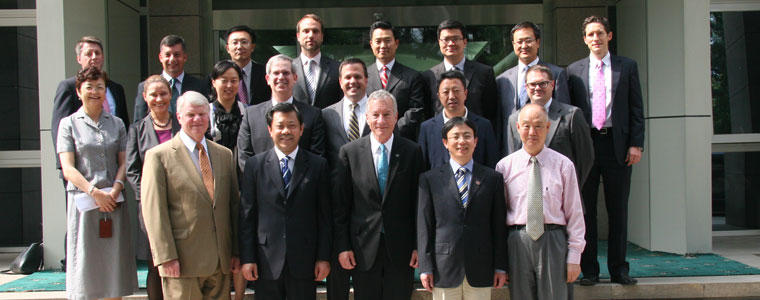USIP President Jim Marshall Leads U.S. Delegation to Crisis Avoidance Track 1.5 Dialogues in Beijing
USIP President Jim Marshall recently led a U.S. delegation to two Track 1.5 dialogues in Beijing aimed at moving quickly beyond intractable official government statements and finding ways for de-escalating tensions in East Asia.

The U.S. delegation led by Marshall in late June included: Stephen Hadley, USIP senior advisor for international affairs and former national security advisor; Admiral Gary Roughead, former chief of Naval Operations; John Park, USIP senior Asia advisor; and a group of Pentagon and State Department officials.
USIP’s formulation and practice of “Track 1.5” diplomacy involves policy exchanges among select current and former policymakers, military officers, and policy experts. By comparison, “Track 1” diplomacy typically involves high-level government and military representatives involved in official negotiations. “Track 2” dialogues involve only non-governmental representatives who meet to build relationships and formulate recommendations and ideas that can be considered during the official diplomatic process.
The first meeting in Beijing was the fifth U.S.-China Project on Crisis Avoidance and Cooperation (PCAC) Track 1.5 Dialogue, which included a Chinese delegation led by the China Institutes of Contemporary International Relations.
The second meeting was the second U.S.-China-Japan Track 1.5 Dialogue on Risk Reduction and Crisis Prevention (R2CP) with an additional Japanese delegation led by the Institute for International Policy Studies.
By convening recurring Track 1.5 dialogues, USIP fosters a deeper understanding of policy perspectives, generates policy proposals, and facilitates policy impact by helping to operationalize these proposals. You can learn more about USIP’s Track 1.5 work here.



